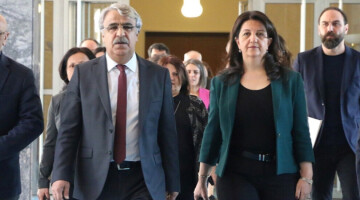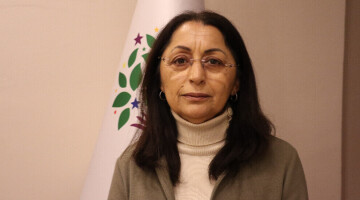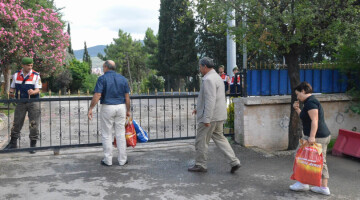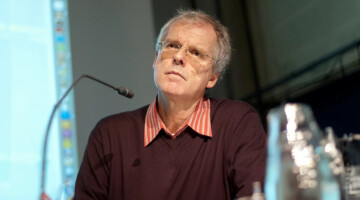The Inter-Parliamentary Union’s (IPU) 135th Assembly was held in Geneva, Switzerland on 23-27 October. The Union spoke out about the increasing levels of retaliation against MPs for exercising their freedom of expression across the world.
IPU´s Member Parliaments addressed the cases of 129 MPs in eight countries whose human rights have allegedly been violated.
In a series of decisions adopted on the violations of the human rights of MPs, the Organization stressed the growing recourse to court action and unlawful exclusion from political life as a means to stifle political opponents. Instead of listening to political opponents judicial proceedings are becoming a political tool to root out dissent.
Concerning Turkey, IPU voiced particular concerns about the situation of the 55 MPs from the opposition party the People´s Democratic Party (HDP) who face over 600 terrorism charges. These MPs were stripped of parliamentary immunity following a constitutional amendment in May authorizing a blanket removal of immunity for a total of 139 parliamentarians from all political parties. IPU said they are seeking a comprehensive solution that goes beyond individual cases and requested the Committee to enhance its contacts with the authorities for this purpose.
In the declaration by IPU Members, the Committee said it:
- Notes with deep concern that 55 of the 58 parliamentarians of the People’s Democratic Party (HDP) are facing over 600 terrorism charges in prosecutions initiated throughout Turkey, after they were stripped of their parliamentary immunity following the adoption of a constitutional amendment on 20 May 2016, which suspended the ordinary procedure for the lifting of immunity and authorized a blanket removal of immunity for a total of 139 members of parliament from all political parties;
- Further notes with concern that the complainant alleges that the evidence adduced to support the charges against the 55 members of parliament relates to public statements, rallies and other peaceful political activities that they carried out in furtherance of their parliamentary duties and of their political party programme, such as mediating between the Kurdistan Workers’ Party (PKK) and the Turkish Government as part of the peace process between 2013 and 2015, advocating publicly in favour of political autonomy, and criticizing the policies of President Erdogan in relation to the current conflict in SouthEastern Turkey (including denouncing the crimes committed by the Turkish security forces in that context);
- Is concerned furthermore that the need to respond to the many charges and likely court hearings across the country will make it impossible for many members of parliament to devote themselves meaningfully to their parliamentary responsibilities;
- Recalls that the fundamental rights of parliamentarians must be upheld at all times, that members of parliament should be able to speak freely without fear of reprisals, that parliamentary immunity is crucial to protect members of parliament from politically motivated allegations but also to protect the independence and integrity of the institution of parliament as a whole;
-Reaffirms its long-standing position that parliament should set aside the necessary time to consider requests for the lifting of parliamentary immunity, and to apply the basic principles of due process, including a hearing of the parliamentarian(s) affected and that a decision to lift immunity should always be agreed by a parliamentary vote on a case-by case basis, and should require valid and credible allegations supported by serious evidence;
- Observes that these requirements were all the more important at a time of increased polarization, when the Grand National Assembly of Turkey should have carefully checked that peaceful and legal political activities by Turkish members of parliament were not presented as evidence of criminal and terrorist acts, given the serious allegations made in the present case and the long-standing concerns expressed over freedom of expression and association in relation to anti-terrorist legislation;
- Considers that the developments in Turkey since the failed coup d’état of 15 July 2016 make it all the more necessary to monitor extremely closely the ongoing judicial proceedings related to the 55 HDP parliamentarians; refers in this regard to the numerous reports pointing to the summary dismissal of prosecutors and judges and the increasingly limited space available for journalists, civil society and others to voice any criticism of the authorities;
- Considers that the magnitude and seriousness of the cases at hand may well make it essential to promote a comprehensive solution that goes beyond the consideration of the concerns in each individual case; requests that the Committee enhances its contacts with the parliamentary authorities, in tandem with the executive and judicial authorities, in order to examine all possible avenues to reach such a solution;
- Requests the Secretary General to convey this decision to the parliamentary authorities, the complainant and any third party likely to be in a position to supply relevant information;
-Requests the Committee to continue examining this case and to report back to it in due course.












